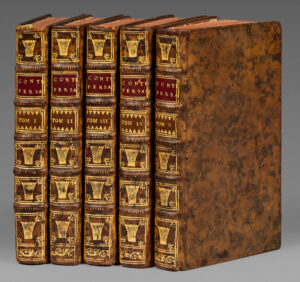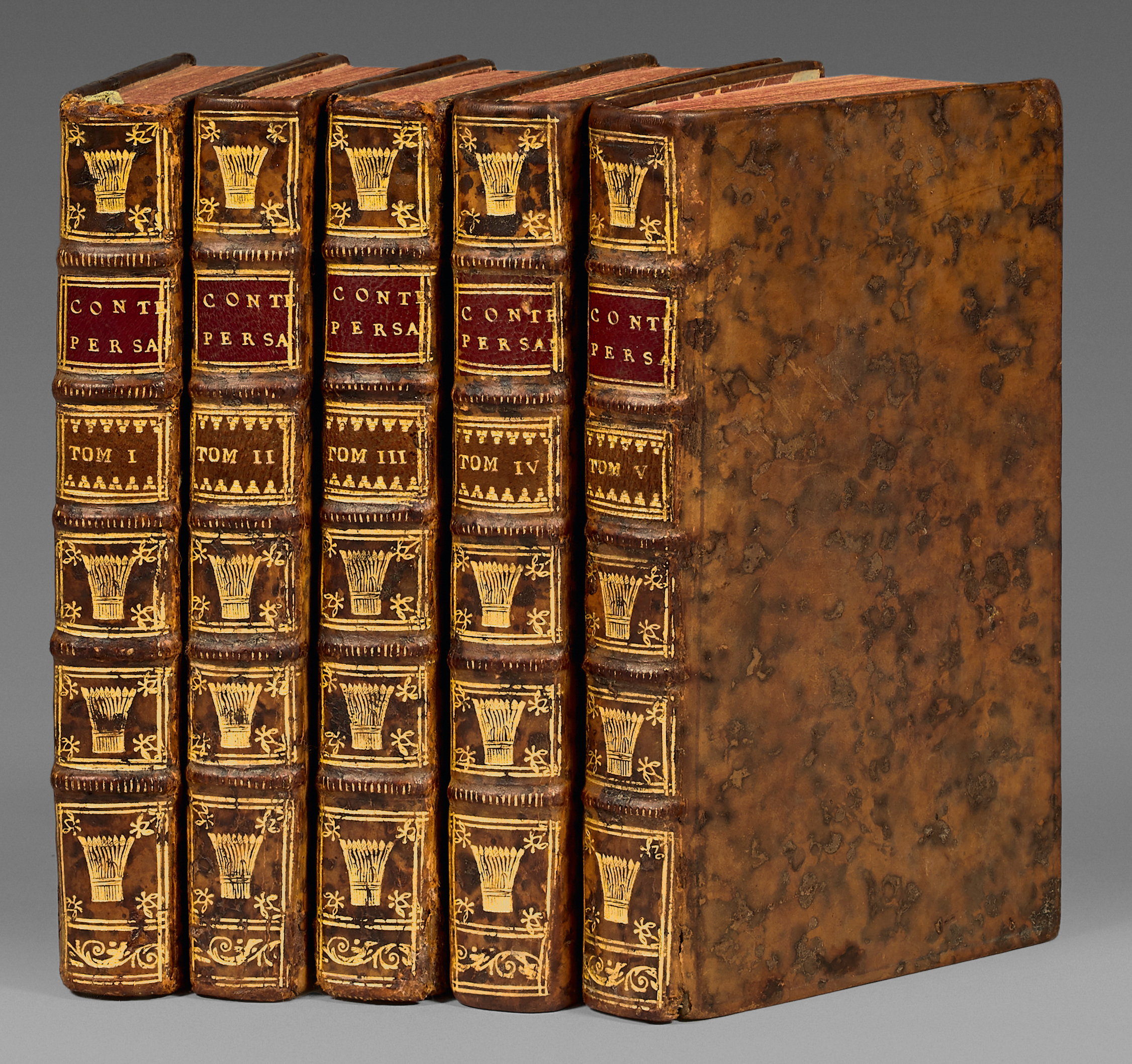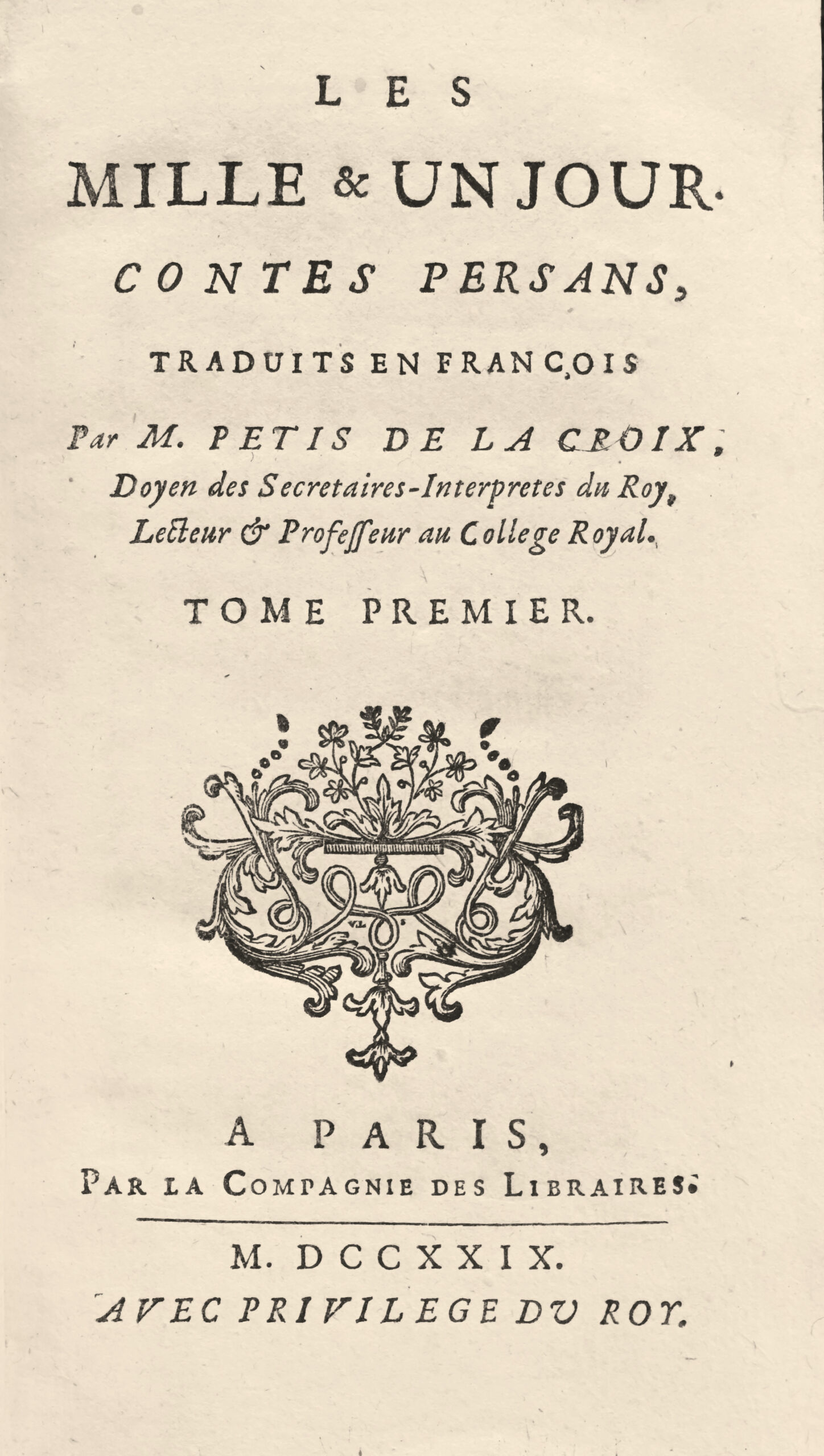Paris, par la Compagnie des Libraires, 1729.
5 parts in 5 volumes 12mo of : I/ 331 pp., (5) pp.; II/ (4) ll., 299 pp., (1) p.; III/ (2) ll., 332 pp.; IV/ (2) ll., 332 pp.; V/ (3) ll., 350 pp. Marbled fawn calf, fillet around the covers, ribbed spines decorated with gilt coats of arms, red and lemon morocco lettering-pieces, speckled edges. Contemporary binding.
165 x 93 mm.
Rare edition of these Persian Tales written in the form of the Thousand and One Nights.
“In ‘The Thousand and One Nights’, it’s a prince warned against women; in ‘The Thousand and One Days’, it’s a princess warned against men”.
Written by the Persian Moclès, who had translated Indian comedies into Persian, they were translated into French by François Pétis de La Croix.
At the age of 16, Pétis de La Croix was sent to the Levant by Colbert.
During a 10-year stay, he familiarized himself with Vulgar Arabic, Literal Arabic, Turkish and Persian. Back in France, he was the King’s official interpreter for all envoys from Constantinople and the Barbary powers. In 1692, he was appointed professor of Arabic and interpreter to the King in Arabic, Turkish and Persian.
“The translator traveled extensively in Africa and Asia by order of the government, and brought back several oriental manuscripts, including the ‘Thousand and One Days’. This work is attributed to Mocles, the famous Persian Dervis, of the race of Mohammed. A Turkish translation of these tales can be seen in the King’s Library, under the title ‘Alfaraga Badal-Schidda’, which means ‘joy after affliction’. The ‘Thousand and One Days’ was translated into English by Philips, in 1738.”
These tales from the “Thousand and One Days” are a delight to read, and like our La Fontaine Fables, all of them carry a moral.
“These tales are reproduced in the ‘Cabinet des fées’ and have been reprinted with other oriental tales, Paris, 1841. To give his work the merit of an elegant, easy style, the Orientalist borrowed the help of the author of ‘Gil Blas'”. (Quérard, Les Supercheries littéraires dévoilées).
The refinement of Persian civilization, in contrast to the Jansenism of the court, prevented Pétis de La Croix from translating many of the tales he considered too erotic.
This edition is rare.
Brunet cites only the later 1766 edition.
Quérard mentions a partial edition in 1 volume 12mo published in 1710, and Garcin de Tassy, author of Histoire de la littérature hindoustane, indicates a Parisian edition of 1722 in 5 volumes.
A fine copy in contemporary marbled calf, with spines decorated with the special gilt sheaf irons used for books from the library of Maynon de Farcheville.
It comes from the library of Vincent Michel Mayon, seigneur de Farcheville, with armorial ex libris with three sheaves of wheat.



